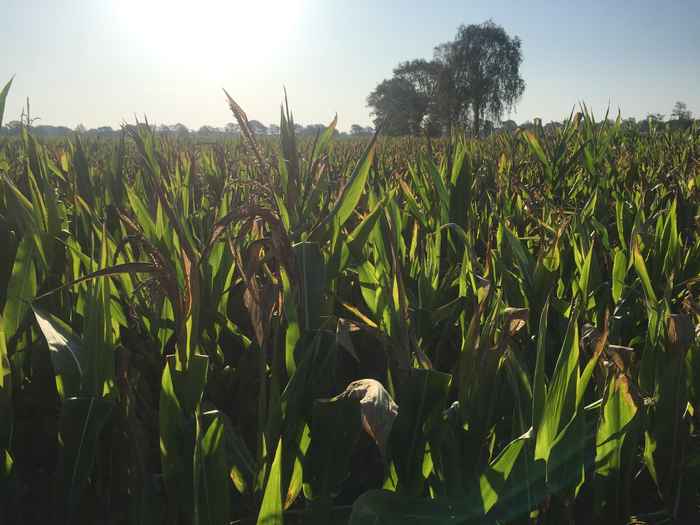Root microbiome can make crops more resistant to drought
16 April 2020

Our changing climate poses a number of challenges for crop farmers. In some parts of the world, they will have to face increasing periods of drought. And solving this by increasing irrigation is not always an option. Fortunately, there may be other solutions.

Study the root microbiome of food crops if you want to make them more resilient to droughtFranciska de Vries, professor of Earth Surface Science
Professor Franciska de Vries of the University of Amsterdam’s Institute for Biodiversity and Ecosystem Dynamics is first author of the new paper. She explains: ‘It is well-known that the bacteria and fungi living on plant roots influence the plant’s health. It is comparable to the microbiome in our own guts. Beneficial bacteria living there are essential for our health, and the impact our microbiome has on our body depends on the types of bacteria present, their activity and their numbers.’
Making food crops resistant to stress
Scientific attention to the response of the soil microbiome to drought has increased over the past few years. However, most of this research has focused on the microbiomes of non-food crops. De Vries: ‘We believe it is important to shift this focus. As our climate is changing, the need for food crops that are more resilient to different types of stress is increasing. If we have more knowledge about the way the root microbiome can help plants during stress, or recover from it, we can use this to protect crop yields.’
Starting Grant from the European Research Council (ERC). It will be very interesting to discover if something like this also applies to food crops.’
Multi-year project on root microbiomes
Unrelated to the research of De Vries and the current Science paper, a project supervised by UvA-biologist Harro Bouwmeester that focuses on root microbiomes recently received a research grant of 20 million euros from the Dutch Research Council (NWO). Studying the effects of environmental stress on microbiome-plant interactions in several types of plants, including food crops, is part of this large multi-year project.
Publication details:
Franciska T. de Vries, Rob I. Griffiths, Christopher G. Knight, Oceane Nicolitch, Alex Williams; Harnessing rhizosphere microbiomes for drought resilient crop production, in: Science, 17 April 2020.